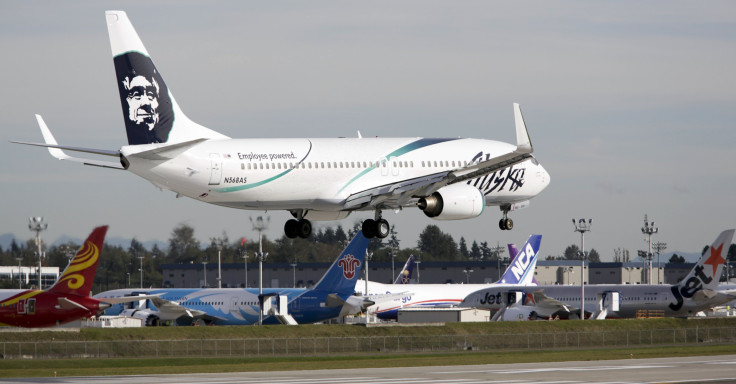Alaska Airlines Employees Sue Boeing Over Claims Of Toxic Cabin Air

Four Alaska Airlines flight attendants filed a lawsuit against Boeing Co Tuesday claiming they were exposed to toxic fumes on one flight in July 2013. The complainants reportedly accused the plane manufacturer of negligence and design defects in the Boeing 737-890.
The flight attendants -- Vanessa Woods, Faye Oskardottir, Darlene Ramirez and Karen Neben -- filed the lawsuit in U.S. Circuit Court of Cook County, Illinois, saying they suffered several health issues after inhaling toxic cabin air on Flight 769 on July 12, 2013. They stated that the aircraft draws air from the engine to pressurize the cabin and this air can become toxic if it is exposed to heated engine oil, the Los Angeles Times reported, citing the lawsuit.
“By reason of Boeing’s design decisions, the environmental control system on the subject aircraft lacked filters which would have purified the cabin air and prevented the subject flight attendant crew from being exposed to toxic fumes,” the lawsuit reportedly stated.
Woods, one of the complainants, reportedly passed out on the flight and three other attendants fell seriously ill. Following this, the Boston-San Diego flight made an emergency landing in Chicago and the four attendants were rushed to a hospital.
“My fingers felt like Jell-O, I couldn’t control them or think clearly,” Woods said, according to Yahoo Travel. “Someone helped me get oxygen, and then I went to the bathroom and began dry heaving,” she added.
After two years of the incident, Woods claims she is still suffering from the effects of the toxic fumes. “I have issues with concentration, I have difficulty reading, constant fatigue, and migraines that last for days,” Woods reportedly said. “After that flight, I knew something was wrong with me — I’m not the same person,” she said.
Boeing did not comment on the suit but a statement, cited by CBS News, read: "Based on solid research ... cabin air is safe to breathe ... contaminant levels are generally low and ... health and safety standards are met."
This is not the first time Boeing has faced such allegations. In April, a British coroner said that samples from a British Airways pilot who died in 2012 were "consistent with exposure" to toxic cabin air, the Associated Press reported.
According to the Federal Aviation Administration, citing studies, cabin air is as good as the air in offices and homes, according to AP. However, a spokeswoman reportedly said the FAA is concerned that contaminants can seep in if certain equipment fails.
© Copyright IBTimes 2024. All rights reserved.












